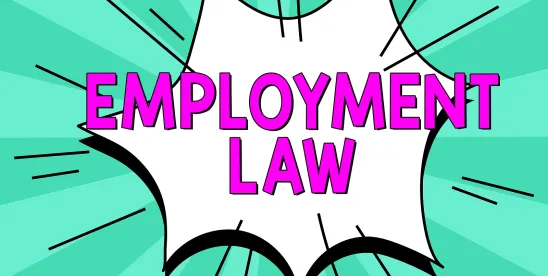“Unfair dismissal rights from Day One”, said the Labour Manifesto, subject always to a probationary period in which terminations will not be challengeable as unfair provided that employers operate “fair and transparent rules and procedures” to provide what Angela Rayner described as “basic rights”.
We are now told that the probationary period will be six months, but left outstanding is the key question of what those rules and procedures will be if that Day One pledge is not to be regarded as either breathtakingly naive or just outright misleading. While no-one should bet the farm on manifesto promises anyway, the difference between Day One and Day 183 is pretty material, and it would hardly be credible for the government to say that it had not anticipated the level of push-back from employers on this measure which it has received.
The problem the government has is two-fold. First, whatever those rules and procedures, it has to be possible for the employer to form a view of the employee and then go through them, all in the space of six months. If your employee is making widgets, that should be ample, but if they are doing something which takes time to learn or if “fit” is particularly important or performance is hard to measure over a few months only (many sales roles, for example) then that time period will place employers under considerable extra management strain and reduce materially the latitude which they may currently be willing to offer in marginal cases. Hard decisions will have to be made earlier, potentially at the cost of employees who, with a little TLC, would otherwise have become real assets to their business.
Second, there is not much the government can do to disapply the basic principles undermining the unfair dismissal regime (a decent reason and a fair procedure) which does not leave the new employee essentially as exposed as he is at the moment.
So stressing that this is entirely guesswork, what might we expect in the Employment Bill next month?:
- a requirement that the employee’s statement of terms contains express reference to the principal criteria by which passing probation or otherwise will be judged. This might tick the “transparent” box.
- No change to employees’ rights to challenge probationary dismissals on grounds of discrimination, victimisation, assertion of statutory rights or retaliation for whistleblowing, etc.
- Possible but unlikely, a requirement of some level of prior warning for minor conduct or performance terminations. This would be “fair” in the non-legal sense. However, a warning given in good faith must allow a period for improvement which is genuinely long enough for that improvement to be made and measured. Again, fine for widgets, lateness and shoddy spelling, but potentially an uphill struggle in any more complex conduct or performance cases or issues around attitude, personality or health.
- Some compulsory consideration of alternative employment opportunities in redundancy cases, just because it is a no-fault reason and generally fairly easy for the employer to do.
- Some form of prior consultation with the employee in advance of the dismissal decision. This would bring the probationary period rules perilously close to full unfair dismissal rights, but it is hard to see that the government could claim rules and procedures around probationary dismissals as “fair” if they allow the employee to be dismissed without a chance to defend himself against whatever the employer claims as its justification.
With less than a month to go before the Bill is brought before Parliament, it is hard to guess what the government intends here. If you were trying to relax the normal obligations of a fair dismissal without making it unfair, what could you do? Very few people other than Ms Rayner still believe that employers dismiss probationary staff just for kicks, but it might nonetheless be that the answer lies in a requirement to demonstrate a reason for the dismissal, even if it would not be strong enough to justify a fair termination under the unfair dismissal rules. If that is right, then it represents little movement from where we are – the employer already needs to be ready to show some evidence of the reason relied upon, even if it is only to displace potential allegations of discrimination, retaliation, etc. In other words, there could be an express burden on the employer during probation to show that it had a reason which, though not urgent or compelling or necessarily that terminal to the relationship, was genuine and not unlawful.
And there are two supplementary questions which are integral to the success or otherwise of this measure – what is the penalty if you breach these rules, and who decides if you have? The former may simply be that you lose the probationary exemption from the unfair dismissal regime. However, this would mean that it would always be worth the employee’s while to allege such a breach. The latter is probably the Employment Tribunal, but then we have the practical problem that a number of the Tribunal offices are already on their knees in terms of hearing dates 12 months or more away. If you add the potential for further litigation to determine whether the unfair dismissal regime applies at all, the prospects for all parties look increasingly grim.




 />i
/>i

